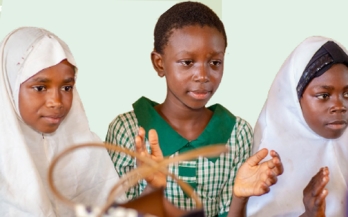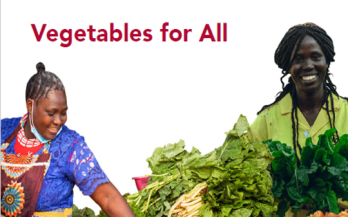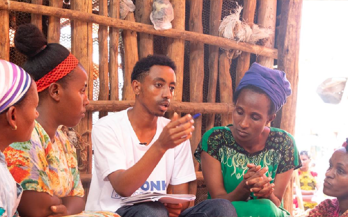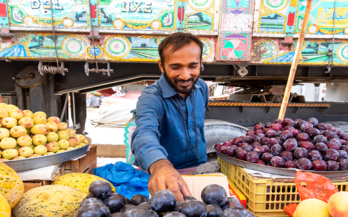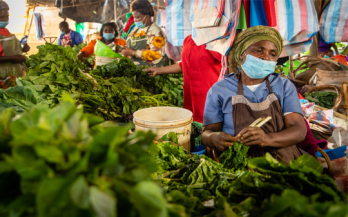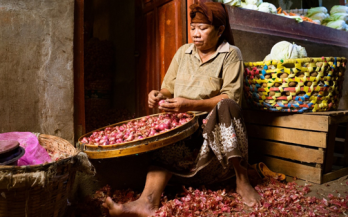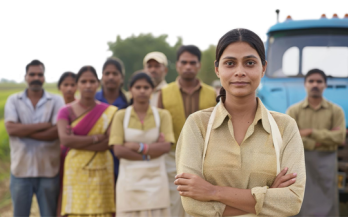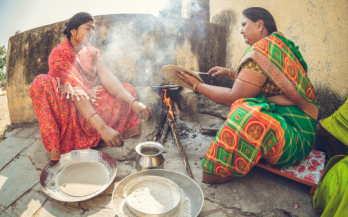Approximately 11 million Nigerian children, or one-third of the population, experience severe child food poverty, significantly increasing their risk of malnutrition, including a 50% higher likelihood of wasting (UNICEF, 2024).
This mirrors a wider global issue, with 66 million children in low- and middle-income countries, including 23 million in Africa, attending school hungry every day (Bekri et al., 2023). Addressing this urgent crisis requires social protection interventions that combat child hunger and improve nutrition outcomes, such as school feeding programmes.
Vegetables for All is a Dutch Government-funded five-year project aimed at improving dietary diversity for 1.1 million urban and peri-urban Bottom of the Pyramid (BoP) consumers by increasing vegetable consumption in alignment with global guidelines. The project is being implemented across five counties: Nairobi, Kiambu, Machakos, Nakuru, and Mombasa, and it specifically targets families with children aged 3-12 in the lower-income group, Living Standard Measure (LSM) 3-7, who earn between USD 1.9 and 3.2 per day.
The FTF EatSafe activity sought to improve food safety in traditional markets, adopting a systems approach and a focus on consumer demand. Traditional markets in LMICs are complex spaces at the core of food systems. Traditionally neglected, they are now recognized as key food environments where most people in LMICs procure their food, and where consumer demand meets supply chains.
Feed the Future's Evidence and Action Towards Safe Nutritious Food (EatSafe) aimed to increase consumer demand for safe, nutritious foods in traditional food markets in Nigeria and Ethiopia. This document details recommended approaches for implementing activities aimed at enhancing food safety in traditional markets through demand-driven behavior change, drawing on insights and lessons learned from EatSafe’s activities in these countries.
Improving food safety in low- and middle-income countries (LMICs), particularly in the traditional markets where most consumers shop, is crucial for advancing nutrition, health, and other development goals. Feed the Future’s (FTF) Evidence and Action Towards Safe, Nutritious Food (FTF EatSafe) activity aimed to stimulate and leverage consumer demand for safer food to drive improvements in food safety in traditional markets.
Feed the Future’s EatSafe: Evidence and Action Towards Safe, Nutritious Food (FTF EatSafe) aimed to boost consumer demand for safe, nutritious foods in traditional markets in low- and middle-income countries (LMICs), specifically Nigeria and Ethiopia. Utilizing a two-phased approach, FTF EatSafe's Phase I combined global evidence with local situational analyses to understand the context, and Phase II involved designing, testing, and implementing interventions to empower consumers.
Insights from formative research guided the development of interventions, including the Vendor Training Initiative in Hawassa, Ethiopia. The Vendor Training Initiative, piloted in the Aroge Gebeya market in Hawassa
Political economy dynamics—that is, conflicts and trade-offs across different interest groups that play an important role in the food system—permeate many decisions about food systems policy and implementation. Development practitioners working in the food systems space—inclusive of agriculture, nutrition, and environmental policies—need to be aware of these dynamics to be able to support policy advocacy, development, and implementation.
Enhancing nutrition for India’s working-age population through workforce nutrition practices can yield numerous benefits, including improved well-being for workers and their families, better productivity, and a stronger economy. Key pillars include access to healthy food, breastfeeding support, nutrition health checks, and nutrition education.
This brief describes a Government of India initiative – the Healthy and Hygienic Food Streets (HHFS) programme that aims to make the country’s street food safer. It shares some of GAIN’s recent contributions to these efforts and provides some implications for national and state governments to consider.
Environmental factors impact human health and nutrition through various pathways, and these impacts can be felt disproportionately by already vulnerable groups like women and children.
